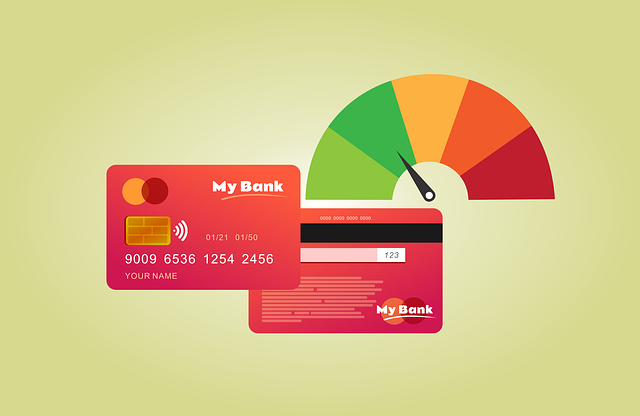What are Loans for Small Businesses?

Small business loans are a type of financing specifically designed to help small businesses meet their financial needs. These loans give small business owners the necessary capital to expand operations, purchase equipment, or cover day-to-day expenses.
Traditional Business Loans
Traditional business loans are a common form of financing for small businesses. Banks and other financial institutions typically offer these loans designed to provide businesses with the capital they need to start or expand their operations.
Business loans from traditional lenders often require collateral, such as real estate or equipment, to secure the loan. The interest rates on these loans can vary depending on factors such as the borrower’s creditworthiness and the length of the loan term.
They usually have fixed repayment terms, meaning the borrower must make regular payments over a set period until the loan is fully repaid. While traditional business loans can be a valuable source of funding for small businesses, they can also be challenging to qualify for, especially for businesses with limited credit history or unstable financials. Banks typically deal with more significant amounts, such as commercial real estate loans.
Alternative Business loans
Alternative business loans are a popular option for small businesses that may not qualify for traditional bank loans. These loans provide an alternative funding source, often with more flexible terms and requirements.
In addition, most alternative lenders are online lenders that use fintech tools to expedite the loan process. That means small business owners can close these loans and receive funding faster than they usually can with traditional lenders.
However, the trade-off for the lower requirements and faster funding times is that these loans tend to have higher rates. Some alternative funding options, like a merchant cash advance, can have significantly higher costs. Many alternative funding options are also short-term business loans.
What are the Best Loan Options for Small Businesses?

Small businesses have a variety of loan options to choose from. Let’s explore some popular types of loans and funding options that can help small businesses thrive.
Business Term Loans
Business term loans through our lender network have the following features:
- Max Funding Amount: $10k-$5 million.
- Factor Rates: Starting at 1-4% p/mo.
- Term: 3 months – 5 years.
- Funding Speed: 1-3 business days.
Business term loans are similar to traditional financing structures. The business receives the funds as a one-time lump sum. It then repays the loan plus interest, typically in fixed amounts. Although, some term loans may have variable interest rates, meaning the amount due can fluctuate.
These loans are great if you have big plans for your business, like expansion, purchasing commercial property, or increasing inventory purchases. Businesses can also use the loan proceeds to fund marketing campaigns, refinance debt, and more.
Business Term Loan Pros & Cons
Pros:
- Provides a lump sum of capital for business needs.
- Fixed repayment terms make budgeting easier.
- Funds can be used for various business purposes.
Cons:
- May require collateral or personal guarantee.
- Longer-term commitment with regular payments.
Business Line of Credit
Business lines of credit through our lender network have the following features:
- Max Funding Amount: $1k-$1 million.
- Factor Rates: Starting at 1% p/mo.
- Term: Up to 36 months.
- Funding Speed: 1-3 business days.
A business line of credit is a flexible financing option that gives businesses access to a predetermined amount of funds that can be used for various purposes. Unlike a traditional loan, a line of credit allows businesses to borrow money as needed, up to the approved credit limit.
This means that businesses only pay interest on the amount they actually borrow, making it a cost-effective solution for managing cash flow fluctuations and unexpected expenses. With a business line of credit, businesses can have peace of mind knowing they have a financial safety net to support their operations and growth.
Whether covering payroll, purchasing inventory, or investing in new equipment, a business line of credit offers the flexibility and convenience to thrive in today’s competitive market.
Business Line of Credit Pros and Cons
Pros:
- You can draw funds immediately.
- Only pay interest on what you draw.
- Few limits on how you can use the funds.
- Unsecured lines are available.
Cons:
- Limited credit line amounts.
- Might require collateral.
- Unsecured lines of credit have higher interest rates.
SBA Loans
SBA Loans have the following features:
- Max Funding Amount: $50k-$5 million.
- Factor Rates: Starting at Prime + 2.75%.
- Term: 5 -25 years.
- Funding Speed: 8-12 weeks.
SBA (Small Business Administration) loans are backed by the U.S. government and offer attractive terms for small businesses. These loans provide long-term financing with low-interest rates, making them an excellent option for startups or businesses needing substantial capital.
SBA Loan Pros & Cons
Pros:
- Low interest rates and favorable repayment terms.
- Available for startups and businesses with limited credit history.
- Can be used for various purposes, including working capital or real estate purchases.
Cons:
- The application process may take longer due to government involvement.
- Strict eligibility requirements must be met.
Equipment Financing
Equipment financing through our lender network has the following features:
- Max Funding Amount: Up to $5 million per piece of equipment.
- Factor Rates: Starting at 3.5% p/mo.
- Term: 1-10 Years.
- Funding Speed: 3-10 business days.
Equipment financing allows businesses to acquire the necessary equipment without paying the total purchase price upfront. Instead, businesses can spread out the cost of the equipment over time, making fixed monthly payments.
This can be particularly beneficial for small businesses or startups that may not have the necessary capital to purchase equipment outright. Equipment financing can be used for various equipment, including machinery, vehicles, technology, and more.
The terms and conditions of equipment financing can vary depending on the lender and the business’s specific needs. Some common types of equipment financing include leasing, equipment loans, and equipment lines of credit. This type of financing financing allows businesses to acquire the necessary equipment without straining their cash flow.
Merchant Cash Advance
Merchant cash advances (MCAs) through our lender network have the following features:
- Max Funding Amount: $5k-$5 million.
- Factor Rates: Starting at 1-6% p/mo.
- Term: 3-24 months.
- Funding Speed: 1-2 business days.
A merchant cash advance is an alternative funding option available to businesses. It is not a loan but rather a cash advance provided to a business in exchange for a percentage of its sales revenue (previously just from daily credit card sales).
The merchant cash advance company usually bases the advance amount on the business’s average monthly sales. One of the main advantages of a merchant cash advance is that it provides quick access to funds, often within a few days.
Additionally, the approval process is typically less stringent than traditional loans, making it a viable option for businesses with less-than-perfect credit. However, it is vital to consider the high cost associated with merchant cash advances.
The fees and interest rates can be significantly higher than traditional loans, making it a costly financing option in the long run. Therefore, businesses should carefully evaluate their financial situation and consider the pros and cons before opting for a merchant cash advance.
Merchant Cash Advance Pros & Cons
Pros:
- Highly accessible funding option.
- Repayment fluctuates with your sales.
- Fast funding times.
- Few limitations on how you can spend the funds.
Cons:
- High repayment amounts.
- Short-term funding.
- Frequent repayments can strain cash flow.
Invoice Factoring
Invoice factoring through our lender network has the following features:
- Max Funding Amount: $10k-$10 million.
- Factor Rates: Starting at 1% p/mo.
- Term: Up to 24 months.
- Funding Speed: 1-2 weeks.
Invoice factoring is a financial solution that allows businesses to improve their cash flow by selling unpaid invoices to a factoring company. Instead of waiting for customers to pay their invoices, businesses can receive immediate funds from the factoring company, typically a percentage of the invoice value.
This can be particularly beneficial for small businesses or those experiencing cash flow issues, as it provides them with the necessary funds to cover expenses and invest in growth opportunities. The factoring company then takes on the responsibility of collecting customer payments, allowing businesses to focus on their core operations.
Invoice factoring offers a flexible and quick source of financing, making it an attractive option for businesses looking to improve their cash flow position.
Invoice Factoring Pros & Cons
Pros:
- Immediate access to cash.
- No debt incurred.
- Improved cash flow management.
- Flexible financing option.
- Less-than-perfect credit can still qualify for factoring.
Cons:
- Costs can run high.
- Potential impact on customer relationships.
- Fees based on when customers repay.
Working Capital Loans
Working capital loans through our lender network have the following features:
- Max Funding Amount: $1k-$5 million.
- Factor Rates: Starting at Prime + 2.75%.
- Term: 3 months – 10 years.
- Funding Speed: 1-3 business days.
Working capital loans are an excellent option for small businesses that need funds to cover day-to-day operational expenses or manage short-term cash flow gaps. These loans provide the necessary liquidity to keep the business running smoothly.
Pros:
- Quick access to funds for immediate financial needs.
- Helps bridge temporary cash flow gaps.
- Flexible repayment options based on the business’s revenue.
Cons:
- Interest rates may be higher compared to other loan options.
- Shorter repayment terms may require more frequent payments.
What are the qualifications for Small Business Loans?

Every lender sets unique eligibility requirements. Approved businesses we work with typically meet the following minimums for each loan type.
Business Term Loan:
- Credit Score: 550+
- Annual Revenue: $75k+
- Time in Business: 6+ months
Business Line of Credit:
- Credit Score: 625+
- Annual Revenue: $200k+
- Time in Business: 6+ months
SBA Loans:
- Credit Score: 650+
- Annual Revenue: $360k+
- Time in Business: 2+ years
Equipment Financing:
- Credit Score: 600+
- Annual Revenue: $250k+
- Time in Business: 1+ years
Merchant Cash Advance:
- Credit Score: 550+
- Annual Revenue: $120k+
- Time in Business: 4+ months
Invoice Factoring:
- Credit Score: 550+
- Annual Revenue: $250k+
- Time in Business: 1+ years
Working Capital Loans:
- Credit Score: 550+
- Annual Revenue: $180k+
- Time in Business: 2+ years
How do I choose the Best Loan option for my Small Business?

There are several factors you need to consider. Let’s dive in and explore some key points that can help you make an informed decision.
Determine Your Specific Financing
Assessing your specific financing needs is crucial before applying for a small business loan. Determine why you need the funds and how much money you require. Are you looking to expand your business, purchase new equipment, or simply cover day-to-day expenses? Understanding the purpose of the loan will guide you in selecting the most appropriate financing option.
Compare Lenders
To find the best loan option for your small business, take time to evaluate various lenders. Research their loan terms, interest rates, and repayment options. Compare these aspects across multiple lenders to ensure you get a favorable deal. Remember that interest rates can significantly impact how much you’ll ultimately pay back, so carefully consider this factor.
Determine Eligibility
As mentioned, each lender sets its own eligibility criteria. You want to ensure you qualify. One option is pre-qualification, which doesn’t require a hard credit inquiry. This preliminary application lets you know if you’re qualified and gives you an estimate of your borrowing amounts and rates. You might want to pre-qualify at several lenders and compare options.
Frequently Asked Questions

Here are the most common questions about popular types of business financing.
Who provides Small Business Loans?

Various lenders offer small business loans. Let’s look at some of the popular types of loans and who provides them.
Traditional Banks
Traditional banks have long been a go-to source for small business loans. These banks typically have established relationships with local businesses and can provide financing based on creditworthiness and collateral. However, getting approved for a loan from a traditional bank can be challenging, especially for newer businesses or those with less-than-perfect credit.
Online Lenders
On the other hand, online lenders have emerged as an alternative option for small business owners. Online lending platforms offer convenience and flexibility, making applying for loans easier and receiving funding quickly. These lenders often consider factors beyond just credit scores when evaluating loan applications, which can benefit entrepreneurs who may not meet the strict requirements of traditional banks.
What type of credit do I need for a Small Business Loan?

Lenders typically consider your personal and business credit scores when applying for a small business loan. These scores are crucial in determining your eligibility for a loan and the terms you may be offered. Let’s take a closer look at the importance of credit scores and how they can impact your chances of securing funding.
Different Types of Credit Considered
Lenders look at overall credit scores and consider various aspects of personal and business credit. Here are a few key factors they may assess:
- Business Credit: Lenders examine your business credit history, including any outstanding loans, payment history, and credit utilization.
- Personal Credit Score: Your personal credit score provides insight into your financial responsibility and ability to manage debt.
- Debt Services Coverage ratio (DSCR): This ratio in business lending measures a company’s ability to generate enough cash flow to cover its debt payments.
- Bank Account Activity: Some lenders may consider your bank account activity, including cash flow patterns or debit card sales, if you operate a retail or service-oriented business.
- Invoices and Accounts Receivable: Lenders may review the value of outstanding invoices and the average time customers pay if your business relies on invoicing clients for services rendered or products sold.
Can I get a Business Loan if I have Bad Credit?
Getting a small business loan can be quite challenging if you have bad credit. Lenders typically consider your credit score an essential factor in determining whether to approve your loan application. However, there are still options available for entrepreneurs with less-than-perfect credit.
Some lenders understand that not everyone has a stellar credit history. They offer specialized loans specifically designed for businesses with bad credit. These loans may have higher interest rates or stricter terms than traditional loans, but they allow entrepreneurs to secure the funding they need.
Online lenders are known to be more lenient. They often take into account other factors, such as your business’s revenue and cash flow, rather than solely relying on your personal credit score. This means that even if you have bad credit, you may still be able to obtain a small business loan from an online lender.
Bad Credit Business Loans through our lender network have the following features:
- Max Funding Amount: $1k – $5 million.
- Factor Rates: 1-6% p/mo.
- Terms: 3 months – 5 years.
- Speed: 1-3 busienss days.
How long does it typically take to secure a Small Business Loan?

Securing a small business loan can vary in terms of timing. The duration depends on factors like the type of loan, lender processes, documentation required, and your preparedness as a borrower. Some loans may be approved within days or weeks, while others might take longer due to more extensive underwriting processes.
What is collateral & how does it impact obtaining a Business Loan?
Collateral refers to assets that borrowers pledge as security against their loan amount. It provides assurance to lenders in case borrowers default on their payments. While not all loans require collateral, having it can increase your chances of securing a loan and may even help you negotiate better terms.
What are my alternatives to Business Loans?
If you’re a small business owner looking for funding options, there are alternatives to business loans that you can consider. Let’s explore some popular types of loans and funding options for small businesses.
Personal Loans
Small business owners can also utilize personal loans as a funding option. These loans are based on an individual’s creditworthiness rather than the business’s financials. However, it would be best if you were careful as you typically don’t want to mix personal and business finances.
Business Credit Cards
Business credit cards offer small business owners a convenient financing option while helping them build their business credit. These cards typically come with rewards programs and benefits tailored specifically for businesses.
Crowdfunding
Crowdfunding is a popular method for businesses to secure funding. It involves raising small amounts of money from many individuals, typically through online platforms. This can be an effective way for startups or small businesses to access capital, as it allows them to tap into a vast network of potential investors.
Popular Types of Business Loans – Final Thoughts

You should have a better understanding of the popular types of loans and funding options available for small businesses. Finding the right financing solution can be a game-changer for your business’s growth and success.
Now that you’re armed with knowledge about different loan options, it’s essential to assess your specific needs and financial situation. Consider factors such as interest rates, repayment terms, and eligibility requirements.
Don’t hesitate to contact lenders or financial advisors who can guide you through this process. Remember, every successful entrepreneur has faced similar challenges when seeking funding – it’s all part of the journey. So go ahead, explore your options, make an informed decision, and take that leap toward securing the funding your small business deserves.
Contact us if you have more questions or are ready to apply for a small business loan. Our funding experts can help you find the best financing options for your business goals.













